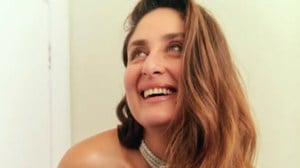Of Dreams and Memories
...

| The Next Big Thing by Anita Brookner Penguin Price: £10.99 |
The title of Anita Brookner’s new novel, The Next Big Thing, sounds more like something Michael Lewis might have written. Nevertheless, as soon as one opens the pages and gets into the story, one finds that this, her twenty-first novel, is vintage Brookner. Like all her novels before it, coming once a year in quick succession, The Next Big Thing describes a tautly controlled, jerkily programmed life in all its long moments of weakness, introspection, reminiscence and doubt.
We know that for the seventy-three year old protagonist, Julius Herz (and ultimately, for all of us) the next big thing is really the biggest thing of all — death. Herz, living alone in his London flat (not home, just a place where he lives — as she has said of her own place) is fastidious and hesitant. He is given to thinking over each act several times over, even writing a letter, tearing it up and rewriting it in a different way — and this, indeed, is how he has lived his cautious, self-effacing emigre’s life. After all, he and his family escaped the other big thing, the Holocaust, when they came to London from Europe.
Caring for his musical genius brother Freddy who degenerates into mental illness, and for his parents who end up in the querulousness of old age, Herz forgets to live his own life. Even Josie, his one chance of happiness, is stifled by the household. And so finally, when the others are all gone, and when Herz suddenly finds himself, through a turn of fate, in possession of a good sum of money, he has nothing to do with it, not even a holiday to take. Family, lovers, friends, all have drifted away. He only has, for company, a heart condition (his name, incidentally, means ‘Heart’ in German), and a set of pills to put under his tongue. And when the one thing that he does keep dreaming of — a reunion with his childhood sweetheart, his cousin Fanny — does happen, finally, in strange circumstances, even that ends, not happily but — following the logic of Herz’s life — unhappily, and with careful restraint.
Brookner’s style has always consisted of long pages of introspection interspersed with a few lines of dialogue. A compelling feature of her novels is the detail with which minor characters are painted, and how they often grow into interesting people. Like Ostrovski, the grey protector of the family; his neighbour, the aggressive young financial consultant Sophie; and Josie, Herz’s strong ex-wife who ultimately reveals her human weakness. And Bernard Simmonds, Ostrovski’s heir and solicitor, who also becomes Herz’s confidante, sharing with him his confusion about what his girlfriend wants. These characters appear and disappear from the screen of Herz’s life much like his dreams and memories that seem to be as real to him as these day-to-day encounters. Passive, seeking contentment, Herz tries to trace the elusive outlines of happiness even as unhappiness seems — oh, so much easier.
Ah, death! Brookner herself is seventy-four. ‘‘I think we should promote euthanasia: as quickly as possible, as universally as possible,’’ she has said matter-of-factly in an Independent interview. Ageing, in Brookner, is drawn out in all its bleakness — a time of loneliness, of living with dreams and memories, of examining one’s life in all its dreariness; and of sexual yearning, of reaching out and finding — that there is no one there.



- 01
- 02
- 03
- 04
- 05



























